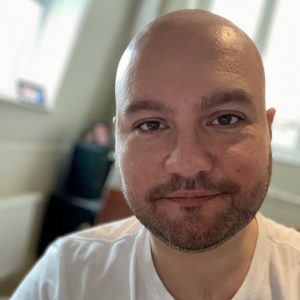Dear Mark, Tom and Travis... Do you remember the first time? The first time this happened, I mean. After spending the better part of a decade influencing teenagers to don Hurley and Atticus t-shirts, sing in high-pitched nasal accents and sling seafoam green guitars so low we have a whole generation of musicians who’ll prematurely suffer from severe back problems, you coined the concept of the ‘indefinite hiatus’.
I guess I first realised there were cracks in your relationship when Tom and Travis released their âBoxcar Racerâ album; ostensibly an outlet for âdarkerâ ideas Delonge felt werenât suitable for Blink. The end result was a Blink-182 album without Mark Hoppus and with a bunch of pianos and faux-Refused shit. This was to be the first taste of Tom Delongeâs transparent desire towards total creative control.
Although most fans welcomed the release as it bridged the gap between Blinkâs much-better-than-its-godawful-title âTake Off Your Pants And Jacketâ album and your self-titled follow-up, I realised something was amiss when during the press for the latter, Hoppus went on record as saying âI took it very personally. It was really hard and a weird time for our band. When Tom and Travis started Box Car Racer I felt like the odd man out, the forgotten bassistâ.
So when, in 2005, Dave Navarro inadvertently announced your initial split I was disappointed, but not surprised. As a former member of Janeâs Addiction and Red Hot Chili Peppers, Navarro was no stranger to inter-band drama, so there was something oddly appropriate about his being the one to accidentally inform the world that Blink had parted ways.
Those of us who grew up listening to you, dressing like you and developing appalling musical technique as a result of teaching ourselves your songs – so we could play terrible, terrible versions of them at school hall âgigsâ to friends whose enthusiastic applause was more the result of the Bacardi Breezers theyâd been necking in the car park – waited with baited breath to see what happened next. What happened next just about sums up whatâs happening this week, a decade later.
Mark and Travis, you went on to form +44 and put out an underrated album of solid pop-punk bangers. Putting the darker lyrical content aside â some of it clearly aimed at Tom (seriously, read the lyrics to ‘No, It Isn’t’) â the album wasnât so much a logical progression from Blink-182 as a step back to the straightforward pop-rock on which youâd built your careers.
Tom, on the other hand. You formed Angels & Airwaves. Best described as what would happen if you locked 30 Seconds To Mars and U2 in a recording studio with an X-Files boxset and a mountain of cocaine, Angels & Airwavesâ debut album âWe Donât Need To Whisperâ confirmed what many of us were thinking: you just didnât want to play Blink-182 songs anymore. (Incidentally, Tom, Iâm not implying that you have a coke habit. Iâm just outright stating that most people would have to be high as a rocket-propelled kite to think a track like Valkyrie Missile needs to be 7 minutes long).
Four years later, in the wake of a plane crash which claimed the life of two of Travisâ best friends and left him with a pathological fear of flying, you reunited. Appearing with Mark and Tom at the 2009 Grammy Awards, and with his arm still in a sling, Travis told us âWe used to play music together, and we decided we want to play music together again.â A beaming Mark Hoppus then declared, âBlink-182 is back!â
But⦠were you? Were you really? Letâs assume, Tom, that your awkward posture was simply a result of having nothing to say. Perhaps you suspected fans blamed you for the bandâs disintegration in the first place; after all, at least one of them outright told you face-to-face:
The more cynical among us couldnât help noting the size of Angels & Airwavesâ tour venues and record sales, disappointing if only by comparison with the multi-platinum arena-stuffing trio with whom you paid your dues, and wondering whether this sudden reconciliation had at least a little bit to do with your having become accustomed to a certain lifestyle during Blink-182âs glory days.
There were three men stood on that stage and two of them, I suspected, could happily have spent the previous 4 years playing the songs I loved. One of them had prevented the others from doing that. It was telling that you let those two men do the talking and that Markâs effusive aura of pride clashed so blatantly with the air you had about you of a primary school child whoâd been called to wait outside the head teacherâs office. But with the promise of new material, the rational approach was to let the music speak for itself.







